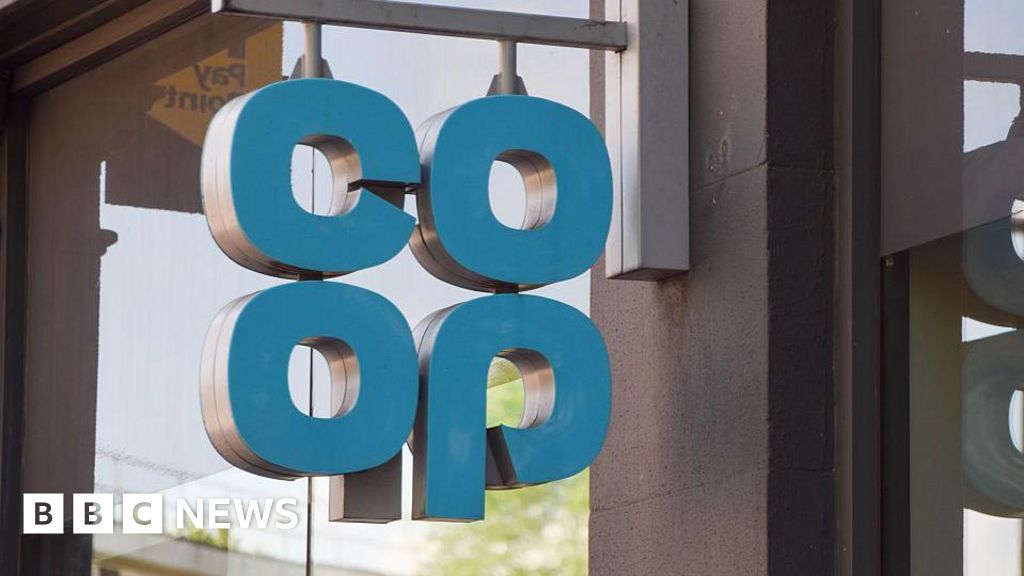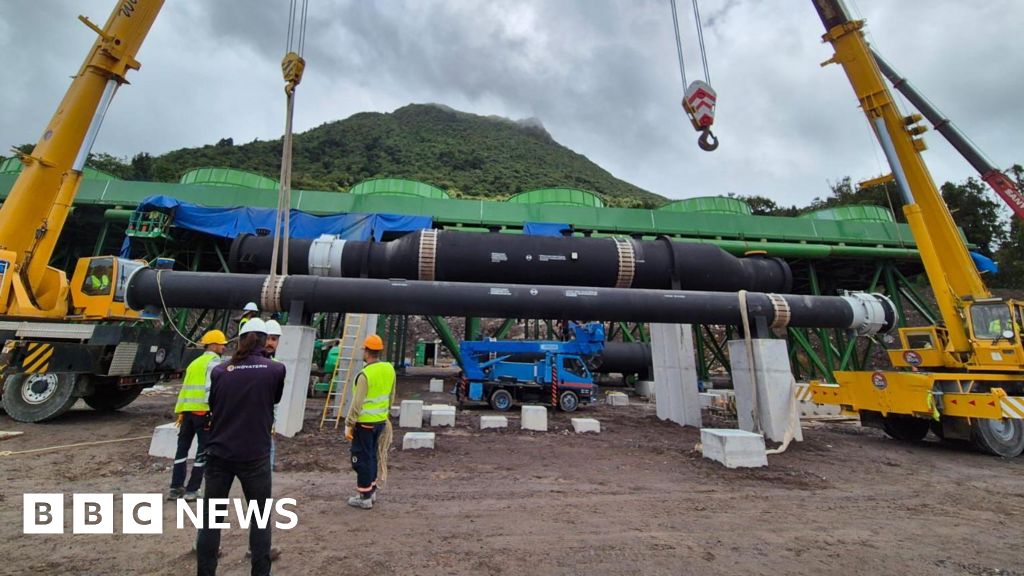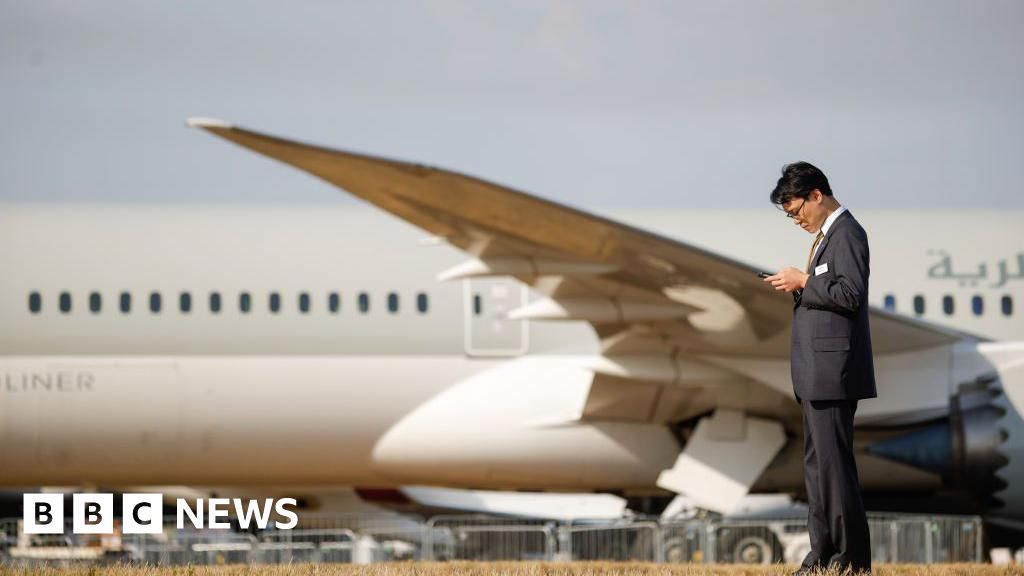ARTICLE AD BOX
Image source, Getty Images
One of Europe's biggest Russian gas importers said it must decide by May whether to bend to Moscow's pay demands without undermining Western sanctions.
Austria's OMV said it has received a request from Russia's Gazprombank about paying for gas in roubles.
Russia has demanded nations pay for oil and gas in roubles and some firms are considering doing so amid supply cuts.
But there is concern the system, where firms pay in euros which are converted into roubles, breaks sanctions.
OMV's chief executive Alfred Stern, said on Friday that the firm is still paying for natural gas in euros, but its next invoice is due in May.
"We are analysing this and coming up with solutions that are sanctions-compliant," he said.
It comes after Uniper, one of Germany's biggest energy firms, said on Thursday that it would use the controversial payment mechanism after gas supplies to Poland and Bulgaria were cut off.
In late March, Russia said "unfriendly countries" would have to start paying for its oil and gas in roubles after Western allies froze billions of dollars the country held in foreign currencies overseas following its assault on Ukraine.
Under the decree, non-Russian buyers of gas must pay euros or dollars into an account at Gazprombank, the Swiss-based trading arm of Gazprom, and then convert this into roubles in a second account in Russia.
The move is seen as an attempt to divide Western allies in their response over the war which has highlighted which European countries are heavily dependent on Russia for energy supplies.
EU Commission president Ursula von der Leyen has warned that complying with Russian demands would breach EU sanctions and would be "high risk" for companies that did so.
Image source, Getty Images
Image caption,Ursula von der Leyen said the EU will support member states impacted by any gas freeze by Russia
But a spokesman for Uniper told the BBC: "For our company and for Germany as a whole, it is not possible to do without Russian gas in the short term; this would have dramatic consequences for our economy."
Mr Stern insisted that OMV "will be compliant with all sanctions and regulatory requirements".
OMV also confirmed that it does still hold some local accounts in Russia for "office activities" like paying rents in roubles, which its chief executive said were nothing to do with gas payments.
Mr Stern condemned the "unprovoked attack on Ukraine", which he said has "created immeasurable human suffering".
OMV group reported better-than-expected results for the first three months of 2022.
Mr Stern said that gas prices had been pushed higher by increased demand from industry and concerns around supplies due to the conflict.
Higher prices off-set a big hit OMV took from its loan for the Nord Stream 2 gas pipeline, which was designed to increase gas flows from Russia directly to Germany, but has now been put on hold because of the war in Ukraine.
Sales in the first quarter jumped by 146% to €15.8bn, although its net loss widened to €1bn.
The group has also stopped all future investments in Russia.
Looking ahead, Mr Stern added that forecasting the company's performance was "very difficult".
According to the Financial Times, Italy's Eni is also considering opening a Swiss account with Gazprom in order to maintain gas supplies.
The company has until the end of May, when its next payment for Russian supplies is due, to make a final decision, reports suggested.

 3 years ago
41
3 years ago
41








 English (US) ·
English (US) ·